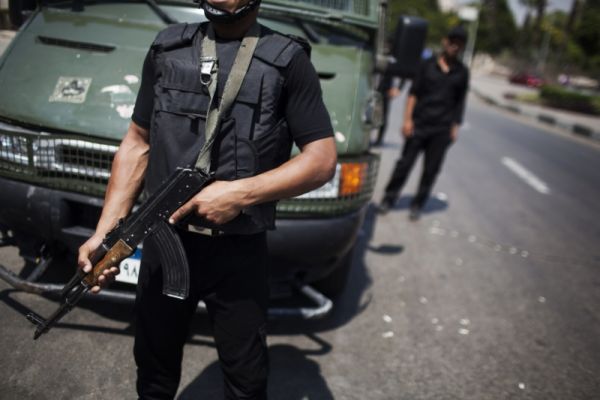CAIRO (AP) — Clashes overnight between police and supporters of Egypt’s deposed president left at least seven people dead, authorities said Tuesday, in the latest eruption of political violence on the country’s streets since the military toppled Mohammed Morsi nearly two weeks ago.
The bloodshed, which comes a week after army troops and police killed more than 50 Morsi supporters, made clear the determination of the ousted Islamist leader’s camp to resist the new political order and to maintain pressure on the military and the interim administration to offer concessions.
Khaled el-Khateeb, the head of the Health Ministry’s emergency and intensive care department, said another 261 people were injured in the clashes that broke out late Monday and carried on into the early morning hours of Tuesday in four different locations in Cairo.
Egypt’s state news agency said 17 policemen were injured in the violence, and 401 people have been arrested in relation to the clashes.
There was no official word on how the seven people died, but security officials said four of them were killed in clashes between Morsi supporters staging a sit-in near the main Cairo University campus and residents of the area. The officials spoke on condition of anonymity because they were not authorized to brief the media.
The violence erupted after sunset during mass protests by Morsi supporters demanding the ousted leader be reinstated. The protest turned violent as police fired volleys of tear gas at the protesters, who burned tires, threw rocks and blocked traffic flow on a main roadway running through the heart of the capital.
The Muslim Brotherhood, the Islamist group from which Morsi hails, said police used birdshot and live ammunition.
The ousted president’s supporters reject what they call a military coup that overthrew the nation’s first democratically elected leader. Thousands of them have been staging sit-ins in two different locations in Cairo, one outside the main campus of Cairo University and another outside a mosque in a neighborhood in eastern Cairo that is a Brotherhood stronghold.
The army stepped in to remove Morsi after days of mass protests calling for the Islamist leader’s removal on the grounds that he had failed to solve any of the country’s pressing problems, including crumbling security and an ailing economy. His opponents also accused him of concentrating too much power in his own hands.
Morsi and the Brotherhood insist that loyalists of the deposed autocrat Hosni Mubarak, who was toppled in Egypt’s 2011 uprising, worked incessantly to undermine Morsi’s rule and that a wave of protests and strikes to hamper badly needed reforms.
In the wake of the coup, the new military-backed administration has moved swiftly against the Brotherhood, detaining several senior leaders over accusations that included inciting violence and killing protesters. Authorities have issued arrest warrants for the group’s leader, Mohammed Badie, and at least 13 other prominent Islamists.
The overnight violence broke out hours after the most senior U.S. official to visit Egypt since Morsi’s ouster concluded a round of talks with the country’s interim leaders in which he called for the participation of the Brotherhood in the political process.
Deputy Secretary of State William Burn said Washington was committed to helping Egypt succeed in its “second chance” at democracy, a comment that signaled that Washington, while calling for an inclusive transition, was moving on from Morsi and his Brotherhood.
Burns insisted that the United States is not taking sides in deeply polarized Egypt, saying it is not Washington’s policy, “as outsiders, to support particular political personalities and particular parties.”
“What we’re going to continue to try to do is to support an open inclusive, tolerant democratic process,” he said. “We hope it will be a chance to learn some of the lessons and correct some of the mistakes of the last two years.”
Videos By Rare
Copyright 2013 The Associated Press.

